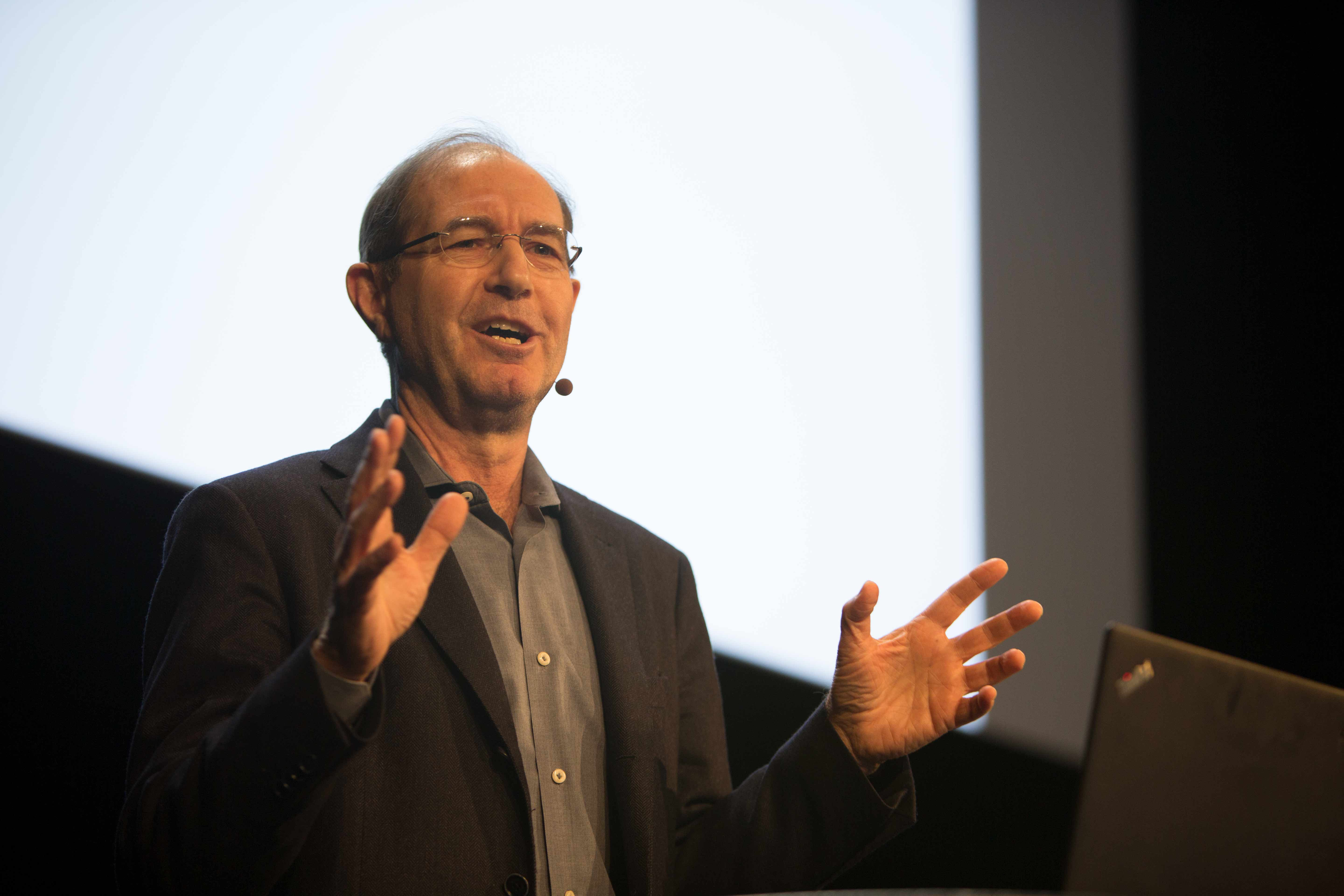How to fix one of Bitcoin’s biggest problems

Bitcoin and similar blockchain systems have a problem, and renowned MIT cryptographer Silvio Micali says he has a solution.
To make blockchains scale, says Micali, the networks will need to adopt a new approach to establishing agreement that the information in the ledger is true. Agreements in current blockchains like Bitcoin and Ethereum require a resource-intensive process called proof of work, by which computers on the network, called “miners,” prove that they are not malicious actors trying to corrupt the ledger (see “What is a blockchain?”). Miners must spend lots of energy to win a chance to add new entries, or blocks, to the chain, earning cryptocurrency as a reward. Though an effective way for a network to come to agreement that the information in the ledger is valid, this consumes large amounts of energy and is relatively slow.
Micali—who won the Turing Award in 2012 for his pioneering work in cryptography, including a number of techniques that are used to secure blockchain systems—shared his vision for a new system, called Algorand, on stage at MIT Technology Review’s Business of Blockchain conference. The system uses a novel approach called proof of stake, in which responsibility for validating new transactions is allocated to users according to how much money they have in the system.
Algorand doesn’t use miners, and the computation required to secure the ledger is “trivial,” which makes the system very fast, says Micali. It uses complicated math (sort of like “magic,” he says) to first select a random user to propose, digitally sign, and add new blocks to the chain. The algorithm then randomly selects 1,000 more users, who check that block and sign it. In each phase, the public keys—the strings of characters that represent these users on the blockchain—are revealed to the rest of the network. The probability that a user will be selected is proportional to the amount of money that user has in the system.
Micali’s approach can also be used to propose and vote on protocol changes, he says, which means that this system will never “fork,” or split, the way the Bitcoin network did recently when the community could not agree on whether to change the protocol to increase its transaction volume. So-called “flexible self-governance” is very important, says Micali, because the community should be able to vote on things like changes to monetary policy. “This splitting of the community is not something that can scale,” he says.
Proof-of-stake systems are still nascent in their development and could create potential unintended consequences, such as centralization or inequality.
Keep Reading
Most Popular
Large language models can do jaw-dropping things. But nobody knows exactly why.
And that's a problem. Figuring it out is one of the biggest scientific puzzles of our time and a crucial step towards controlling more powerful future models.
How scientists traced a mysterious covid case back to six toilets
When wastewater surveillance turns into a hunt for a single infected individual, the ethics get tricky.
The problem with plug-in hybrids? Their drivers.
Plug-in hybrids are often sold as a transition to EVs, but new data from Europe shows we’re still underestimating the emissions they produce.
Google DeepMind’s new generative model makes Super Mario–like games from scratch
Genie learns how to control games by watching hours and hours of video. It could help train next-gen robots too.
Stay connected
Get the latest updates from
MIT Technology Review
Discover special offers, top stories, upcoming events, and more.